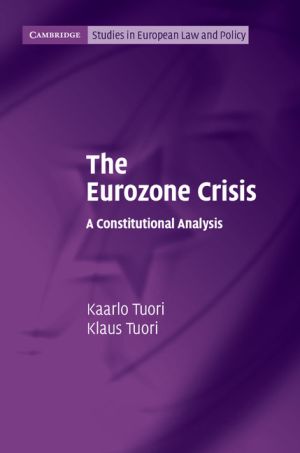
Topical and timely, this book offers an economically informed constitutional analysis on European responses to the crisis. It discusses the longer-term proposals on the table including rescue measures and stability mechanisms, as well as the tightening of European economic governance.
The authors see the European constitution as a multidimensional and multi-temporal process of constitutionalisation. They examine how the crisis has catapulted the economic constitution back to the 'pacemaker' position from where it determines developments in the political and social dimensions.
However, now the key role is not played by the constitution of 'microeconomics', focusing on free movement and competition law, but the constitution of 'macroeconomics', introduced in Maastricht.